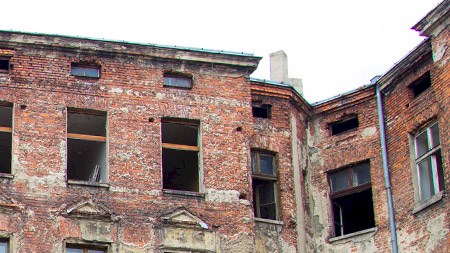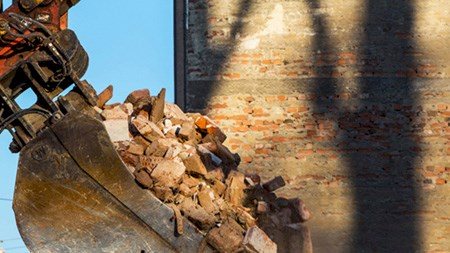Thousands of poor people who were sold discounted council flats could lose them because they cannot afford the levy payments.
There must have been much celebrating when the eThekwini municipality sold its council flats for a peppercorn amount ranging between R600 and R700. Unfortunately for those who bought their own homes, there was a catch: it appears that no one explained one of the consequences of buying a sectional title property, namely levies.
A report in the Daily News highlights the problems residents are now facing. Many have lost their properties and others have been receiving summonses to appear in court because of unpaid levies.
A sectional title scheme has to charge levies in order to function. Maintenance needs to be carried out on a fairly regular basis and that takes money. However, the fact that many owners can't afford to pay levies has seen the former council flats fall into disrepair. According to the report, this has led to little or no maintenance being carried out on the common property and in some cases, necessary infrastructure such as lifts were no longer working.
Even worse, the lack of management has led to overcrowding. It appears that slum landlords have jumped on the bandwagon going as far as converting the two bedroom units into four bedrooms and leasing these out to up to 16 people at a time.
It's not only the buildings that have suffered. The residents of Flamingo court, situated in the south of Durban went to court and were granted relief against the eThekwini Municipality's decision to shut off the block's water supply.
The residents who weren't in a position to pay the millions owed for water, were given leeway when the Judge ordered that the municipality install individual water meters in each unit and that the outstanding amount be written off in accordance with the municipality's Debt Relief Policy.
The Legal Resources Centre (LRC) who represented the residents said that the municipality did not undertake enough consultation with the residents regarding the levy charges, which many were unable to afford. The building, which comprises 200 units was converted into a sectional title scheme between 1998 and 2002. It is situated in an historically disadvantaged area and is home to some of Durban's poorest communities.
The court has asked that oral evidence be presented at a later stage on other issues. According to a press release issued by the LRC, the municipality's conduct will be looked at and questioned as to whether they took all the necessary steps to rehabilitate and restore the complex to bring it into a sustainable condition prior to selling and transferring the sectional title units. The court will then have to decide whether the municipality's conduct was valid and lawful in light of the Constitution.
Although there have been calls to subsidise levies, this appears unlikely to happen. The costs associated with this type of subsidy would be enormous. Although not all of the schemes are in dire straits, it's going to take an awful lot of money to fix those that have fallen into a state of disrepair.
To be fair, the municipality is in a bit of a catch-22 situation. It's certainly done the right thing by facilitating those who, under normal circumstances, would probably never have been able to afford their own homes. However, home ownership has always entailed far more than owning the roof over your head. Maintenance and the general upkeep of a block of flats is always going to cost a significant amount and asking the municipality to step in and fund any maintenance projects isn't, according to Human Settlements MEC Ravi Pillay, going to be sustainable.
Ironically something that should have been beneficial has, in certain instances, backfired horribly. Obviously something needs to be done in order to help those in need. The big question is what? Even if a solution is found, who on earth is going to fund it?





